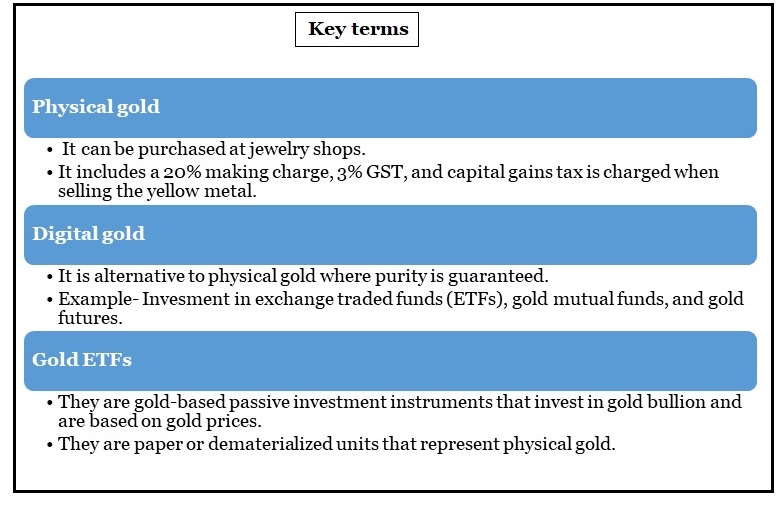7667766266
enquiry@shankarias.in
People prefer physical gold over sovereign gold bonds as no trail is left for the tax authorities.

|
About |
A financial instrument introduced by government to reduce gold imports |
|
Launch year |
2016 |
|
Issuer |
Reserve Bank of India (RBI) on behalf of Government of India |
|
Interest |
2.5% paid semi-annually |
|
Eligible investors |
|
|
Investment limit |
|
|
Authorized agencies to sell SGBs |
|
|
Tenure |
8 years with exit option after the 5th year |

Quick facts
|
Electronic Gold Receipts |
|
References